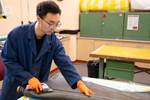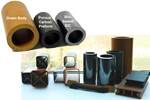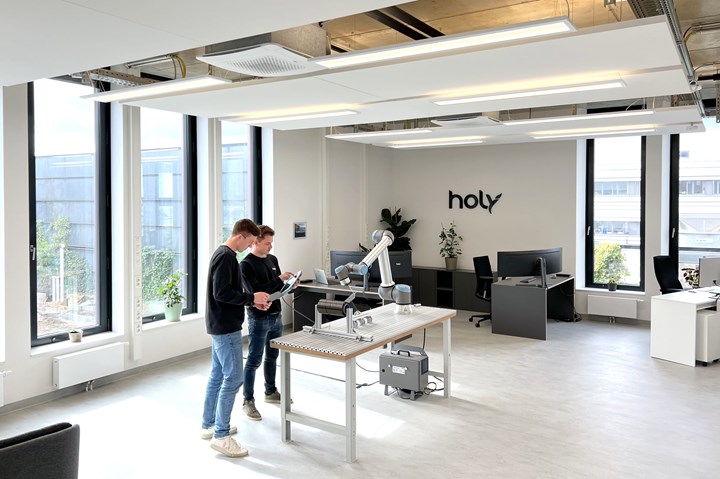Holy Technologies platform enhances carbon fiber component recyclability
Through independent testing, the deep-tech startup confirms high mechanical properties preservation, and potential to give recycled carbon fibers up to seven lives when using its Infinite Component Platform.
Deep-tech company Holy Technologies (Hamburg, Germany) announces a significant breakthrough that presents a viable solution to the longstanding challenge of recycling carbon fiber components.
Independent tests conducted at the Technical University of Hamburg (Germany) have demonstrated the robustness of Holy Technologies’ Infinite Component Platform that enables composite components designed for recycling. Results indicate that through this platform, components recycled retain 95-96% of their original mechanical properties, with only 4-5% degradation. Moreover, when transitioning through subsequent cycles, such as the second to the third life of the product, the fiber maintained 99% of its properties, reflecting only a 1% loss in mechanical properties. Holy used novel recyclable resin Recyclamine by Aditya Birla (Mumbai, India), and focuses its IP on achieving the highest possible degree of recyclability for the fiber rovings.
A critical aspect of this development is the ability to properly recycle rather than downcycle the carbon fiber components, Holy reports. This distinction is vital, as it enables the recycled components to be used for the same high-end applications as their original counterparts, a feat that stands in contrast to most existing recycling methodologies.“We see a viable path to give carbon fibers up to seven lives as long as our technology is utilized during design, manufacturing and recycling,” Bosse Rothe, CEO of Holy Technologies, says.
Through its extension of the lifecycle of carbon fibers and establishing a closed-loop material systems, Holy’s Infinite Component Platform could enable manufacturers to reduce material costs and meet their fiber supply goals.
Holy Technologies is a startup company seeking to decarbonize lightweight manufacturing by designing scalable, sustainable production systems. Holy
has developed a software-hardware production system for industrial-scale composites manufacturing that uses a combination of machine learning and additive manufacturing, capable of creating components for lightweight manufacturers across industries. Holy already works with global innovation leaders from high-performance industries, including motorsport, to make their components up to 30% lighter and 100% recyclable.
What makes Holy’s approach distinctive is the elimination of fiber cutting during manufacturing in combination with an intelligent fiber deposition engine that considers parameters from the entire production cycle, from design and manufacturing to recycling. Holy develops software that calculates the ideal fiber paths to enable components out of one single fiber. By integrating factors like geometry, fiber properties, manufacturing settings, load conditions and recyclability constraints, the software determines the most efficient route for fibers. The ambition is to achieve an industrial-scale production system that cuts the production costs of composites by up to 50%.
Related Content
-
Daher CARAC TP project advances thermoplastic composites certification approach
New tests, analysis enable databases, models, design guidelines and methodologies, combining materials science with production processes to predict and optimize part performance at temperatures above Tg (≈150-180°C) for wing and engine structures.
-
Rocket Lab begins installation of large AFP machine for rocket production
The 99-ton AFP machine, custom-designed and built by Electroimpact, is claimed to be the largest of its kind, expecting to save around 150,000 manufacturing hours in the Neutron rocket’s production process.
-
Sinonus launches energy-storing carbon fiber
Swedish deep-tech startup Sinonus is launching an energy-storing composite material to produce efficient structural batteries, IoT devices, drones, computers, larger vehicles and airplanes.
















